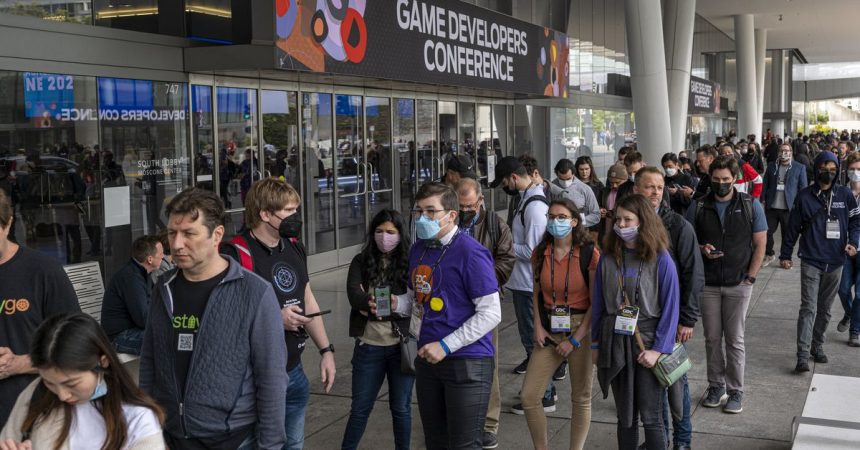The video game industry, a dynamic and often volatile sector, experienced significant turbulence in 2024, marked by widespread layoffs and a reassessment of prevailing development trends. The annual Game Developers Conference (GDC) state of the video game survey, polling over 3,000 developers, painted a stark picture of an industry grappling with overexpansion, market saturation, and the precarious nature of live-service game development. A staggering one in ten developers reported job loss, a stark figure that underscores the challenges faced by professionals in this competitive field.
The impact of these layoffs extended far beyond those directly affected. A substantial 41% of respondents reported experiencing the ripple effects, witnessing colleagues lose their positions or enduring the anxiety of potential downsizing. The true extent of the impact, however, is likely even greater. The survey highlighted the struggles of recent graduates and students attempting to enter the industry, finding themselves facing a shrinking job market and heightened competition. This difficulty in securing entry-level positions suggests a significant bottleneck in the talent pipeline, potentially impacting the industry’s long-term growth and innovation.
The reasons behind these widespread job losses are complex and multifaceted. While companies often cited restructuring (22%) and declining revenue (18%) as justifications, a significant 19% offered no explanation at all, leaving developers to speculate about the underlying causes. Many developers attributed the layoffs to the industry’s rapid expansion during the pandemic, a period marked by increased demand for gaming as lockdowns confined people to their homes. This surge in demand spurred aggressive hiring and studio acquisitions, creating an inflated workforce that became unsustainable as demand normalized with the easing of COVID-19 restrictions.
However, some developers believe the explanations provided by companies are a smokescreen for a more fundamental issue: corporate greed. Despite reporting continued revenue growth, industry giants like Microsoft and Sony engaged in multiple rounds of layoffs and studio closures. This discrepancy between financial performance and workforce reduction fuels suspicion among developers, with 13% attributing the layoffs to a prioritization of profit maximization over employee well-being. This perception of corporate greed contributes to a sense of instability and distrust within the industry.
The survey also explored the evolving landscape of game development, particularly the challenges faced by live-service games. Despite the success of established titles like Fortnite, Roblox, and Call of Duty, launching a new live-service game capable of competing in this saturated market has proven increasingly difficult. The year 2024 saw the failure of several high-profile, big-budget live-service titles, highlighting the risks associated with this development model. Conversely, smaller-scoped, single-player experiences like Balatro, Animal Well, and Astro Bot garnered critical acclaim and commercial success, suggesting a growing appetite for more focused, narrative-driven games.
This shift in player preferences presents a potential disconnect with current development trends. The GDC survey revealed that over 30% of AAA developers are currently working on live-service games, a significant investment in a genre facing increasing challenges. Developers themselves acknowledge the difficulties, citing market oversaturation as a major obstacle. Building a sustainable player base in an environment dominated by established giants requires significant resources and innovative approaches, making it increasingly difficult for new entrants to gain traction. This overreliance on the live-service model may be contributing to the industry’s volatility, as developers struggle to adapt to evolving player preferences and market realities. The future success of the video game industry hinges on its ability to strike a balance between pursuing innovative, large-scale online experiences and catering to the enduring demand for engaging, single-player narratives.



